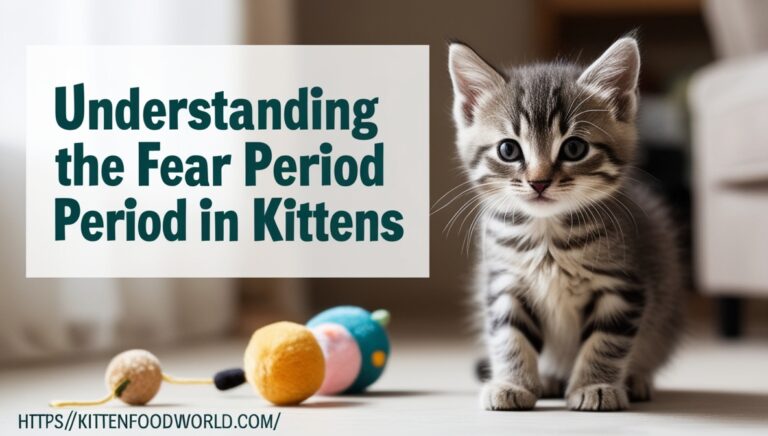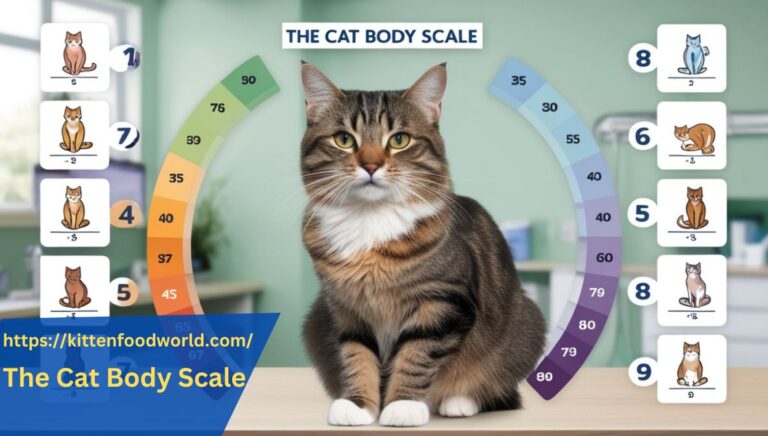How Do You Know How Old a Kitten Is?
Introduction: how to tell how old a kitten is?
Determining the age of a kitten is essential for providing proper care, from feeding to vaccinations. Knowing how old your kitten is can guide you in offering the best possible environment for its growth. In this article, we explore various ways to estimate a kitten’s age using physical, behavioral, and professional methods.
Kitten’s Development Milestones
Newborn (0-1 Week)
Newborn kittens are blind, deaf, and entirely dependent on their mother. Their eyes remain closed during the first week, and they weigh between 85-115 grams. ASPCA suggests that kittens’ eyes generally open between 7-14 days.
1-2 Weeks Old Kitten
During the second week, kittens begin to open their eyes, which are initially blue. Their ears start to unfold, and they begin to make more noise. Kittens this age are still nursing exclusively. According to VCA Hospitals, this is a critical time for early socialization.
2-3 Weeks Old Kitten
Kittens start to stand and walk with unsteady steps. The first teeth, known as baby teeth, begin to emerge. If you notice tiny teeth, the kitten is likely around 2-3 weeks old. The kitten’s weight will typically range from 200-300 grams at this stage.
3-4 Weeks Old Kitten
By the fourth week, kittens are more active and curious about their environment. They may start to play and explore their surroundings. This is also when they can begin to eat solid food, although they will still nurse. The American Association of Feline Practitioners (AAFP) notes that early weaning should be approached cautiously to ensure proper development.
4-6 Weeks Old Kitten
Kittens at this age are highly playful and starting to use a litter box. Their teeth are fully erupted, and they can eat kitten food regularly. According to PetMD, kittens should weigh between 400-600 grams by this time.
6-8 Weeks Old Kitten
Kittens between six and eight weeks are fully weaned and eat solid food exclusively. Their eye color has likely changed from blue to its permanent shade, and they are very active. This age is ideal for starting vaccinations, as recommended by the American Veterinary Medical Association (AVMA)
Developmental Stages of Kitten Behavior
Vocalization and Activity Level of Kittens
Younger kittens tend to be quieter and sleep more than older kittens. As they grow, they become more vocal and active. If your kitten is highly playful and vocal, it’s likely at least 6 weeks old. International Cat Care provides further insights into kitten development stages.
Socialization and Interaction Kittens
Around three weeks old, kittens start to interact with their littermates and humans. A well-socialized kitten is likely older, while a shy, unsocialized kitten may be younger. Proper socialization is crucial during this period to ensure a well-adjusted adult cat, as emphasized by The Humane Society.
Kitten feeding guide by age
0-4 Weeks: Nursing or Formula Feeding
Kittens under four weeks should nurse from their mother or be bottle-fed with kitten formula. This is essential for their immune development, according to The Kitten Lady.
4-6 Weeks: Transitioning to Solid Food B
Between four and six weeks, kittens begin transitioning to solid food. They may still nurse occasionally but will increasingly rely on kitten food. The Cornell Feline Health Center suggests introducing soft, wet kitten food during this stage.
6-8 Weeks: Solid Food Only
By this age, kittens should be fully weaned and eating solid food regularly. If your kitten no longer shows interest in milk or formula, it’s likely at least six weeks old, as noted by Blue Cross
Conclusion
Determining a kitten’s age involves observing physical traits, behaviors, and feeding habits. By assessing these factors, you can estimate a kitten’s age and provide the appropriate care. If in doubt, consult with a veterinarian for a more precise assessment.
For additional guidance on kitten care, check out related content on Kitten Food World, such as New Kitten Information.







